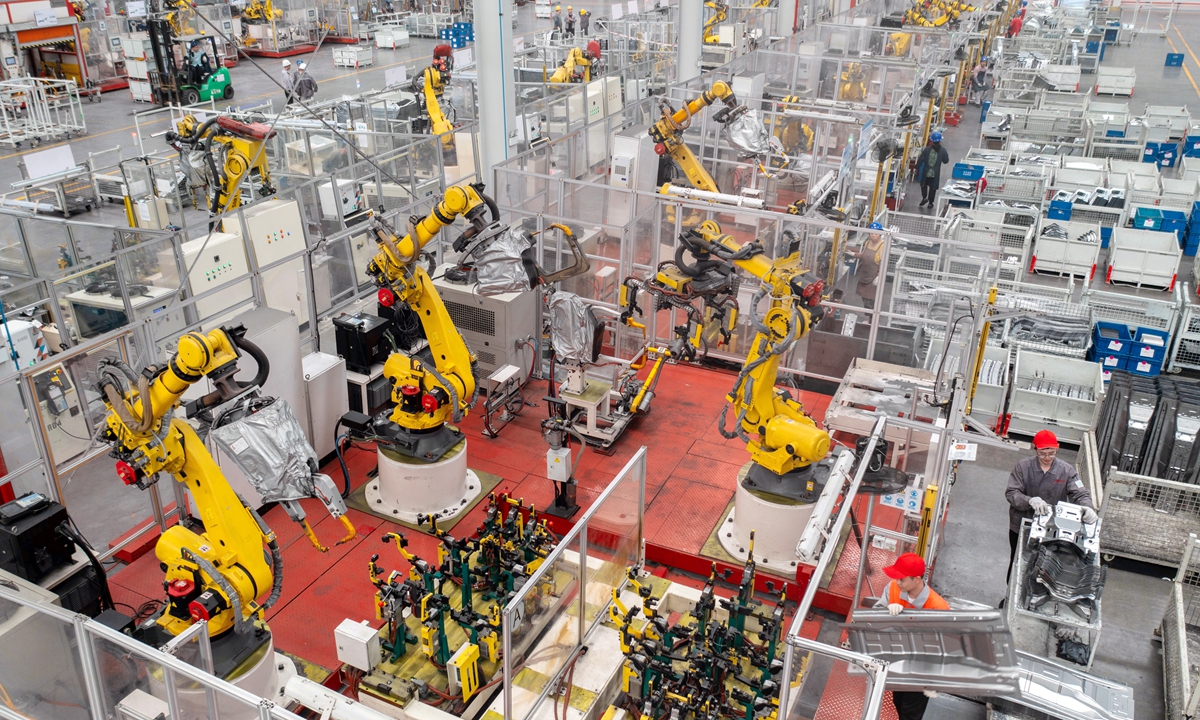
Workers and automatic robots make new-energy vehicle (NEV) parts at a factory in Huzhou, East China’s Zhejiang Province, on May 4, 2023. China has been the largest NEV producer for eight years in a row. The nation produced 674,000 NEVs in March, up 44.8 percent year-on-year. Photo: VCG
A draft law aimed at promoting the private sector was submitted on Saturday to the Standing Committee of the 14th National People’s Congress (NPCSC) for preliminary review. The proposed legislation seeks to address gaps in China’s legal framework by establishing clear guidelines to support the growth and development of the private economy.
The draft consists of nine chapters and 78 articles, and outlines eight key areas, including general principles, fair competition, investment and financing environment, scientific and technological innovation, normative guidance, services guarantee, rights and interests protection, and legal responsibilities.
The law aims to transform the effective policies and practices guiding the development of the private economy since the reform and opening up, particularly those implemented since the 18th Communist Party of China National Congress, into legal systems. It will establish equal treatment and protection for the private sector, while promoting its expansion, according to an article on the official website of the Ministry of Justice.
The draft also underscores the importance of regulation and guidance to ensure the healthy development of both the private economy and the individuals behind it. This approach aims to balance support with oversight.
Wang Xiang, a spokesperson for the Legislative Affairs Commission of the NPCSC, said during a
press briefing on Thursday that the law would "maximize the market's role in resource allocation while enhancing the government's function" The Legislative Affairs Commission is responsible for drafting legislative plans for the NPCSC.
Earlier this year, the Central Economic Work Conference called for the enactment of a law to promote the private economy, a proposal that was also included in the 2024 legislative work plans of both the NPCSC and the State Council.




